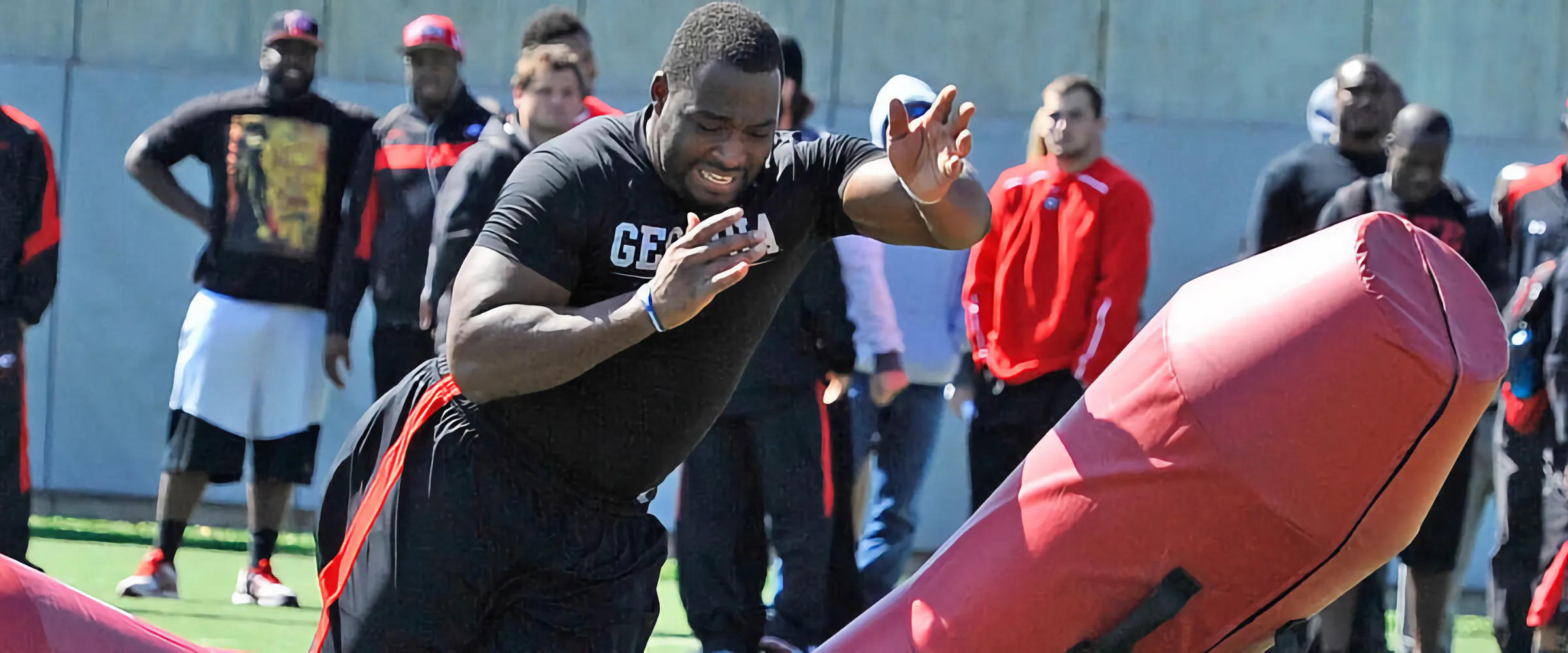MS in Kinesiology (Motor Control and Learning)
Introduction
Interested in the study of motor development, motor learning, and movement control? Our M.S. in Kinesiology emphasis in motor control and learning will fit your career goals.
Your studies focus on the developmental aspects of movement and function across the lifespan, and you’ll immerse yourself in the latest information available about teaching physical education, sport, and physical activity.
Highlights
- Top 10 doctoral program ranking by the National Academy of Kinesiology
- Study the latest information available about motor control and learning
- Our programs provide hands-on, practical experience
Curriculum
The motor control and learning specialization is a research-oriented program for students interested in the study of motor development, motor learning, and movement control. This includes:
- The developmental aspects of movement and function across a person’s lifespan
- Underlying mechanisms related to physical and motor functioning
- How these mechanisms occur in conjunction with motor skill acquisition and sports-related movements
As a student in the motor control and learning specialization, you will take coursework in
- Motor development
- Motor control and motor learning
- Therapeutic exercise
- Developmental and motor assessment
There are also ample opportunities for fieldwork and research experience.
The M.S. in Kinesiology program typically requires a minimum of 30 coursework hours for the thesis program. Our 15 hours of required coursework includes:
- Adapted physical education
- Motor development
- Motor control and motor learning
- Therapeutic exercise
- Developmental and motor assessment
- Program design in kinesiology
We also offer a variety of support courses, research courses, and electives that cover many related topics and areas.
Our faculty is internationally recognized for its expertise in motor control and learning. As a student in our program, you will work with your major professor to determine a program of study based on your goals.
Our faculty have expertise in a range of subjects, with faculty members who serve as advisors to students in the exercise physiology emphasis:
- Dr. Deborah Barany
Director, Brain and Action Lab
Director, Neurostimulation Lab - Dr. Chris Modlesky
Director, Neuromusculoskeletal Health Lab
Co-Director, DEXA Lab - Dr. Phillip Tomporowski
Director, Cognitive and Skill Acquisition Lab - Dr. Jing Xu
Director, Cognition and Dexterity Lab
Director, Neurostimulation Lab
How to Apply
The Graduate School handles admission for all graduate programs at the University of Georgia, including those in the College of Education. The Graduate School website contains important details about the application process, orientation, and many other useful links to guide you through the process of attending UGA at the graduate level.
Start A Graduate School Application
You should hold an undergraduate degree in physical education, exercise science, psychology, or special education. In addition to completing your application, you will also submit transcripts from all institutions attended, three letters of recommendation, and other documents to our department.
Prospective Graduate Student Application Checklist
The following should be uploaded to the Graduate School’s application:
- Unofficial transcripts from each institution of higher education attended
- Statement of Purpose
- Statement of Purpose should summarize your career goals and how the degree program would help you attain those identified goals.
- If applying to an MS-thesis or Ph.D. program, ensure you describe your research interests and how your interests fit with a specific faculty member within the Department of Kinesiology.
- A CV or resume
- Contact information for three references
Deadline to Apply
January 10 (thesis)
Additional Resources
Please use our online form if you have any questions for the department. Please be as specific as possible so that we may quickly assist you.
The College’s programs are taught by dedicated faculty who are experts in a range of areas and are passionate about helping students succeed both in their programs and professionally.
A close working relationship with your advisor is key as you progress through your program of study. Please note that most graduate students at UGA are not assigned to a faculty advisor until after admittance.
Almost all in-state students begin their studies at UGA paying limited tuition or fees. Please note that these amounts are subject to change and are meant to give prospective students an idea of the costs associated with a degree at the University of Georgia College of Education.
Students may qualify for a variety of assistantships, scholarships, and other financial awards to help offset the cost of tuition, housing, and other expenses.
More than 150 graduate students from across the globe enroll in our department programs each year. Our size and diversity provide you a range of perspectives and ample networking opportunities both within and outside the department.
Located in the Ramsey Student Center for Physical Activities, the nation’s largest on-campus facility for recreation and fitness. Our department’s facilities include 10 laboratories, offices, conference rooms, and classrooms.
We provide assistantship opportunities to qualified students, offering financial support and experience in a professional, teaching, or research role. Assistants work 13 to 20 hours a week and receive a stipend, full tuition waiver, and one-third remission of our university health insurance.
Our research has been supported by grants from the U.S. and Georgia departments of education, the National Institutes for Health, the National Science Foundation, Waterloo Foundation, BUPA Foundation, Coca-Cola Beverage Institute for Health & Wellness, International Life Science Institute (ILSI), Stinchcomb Family Foundation, Veterans Administration, Georgia Gerontology Consortium, and other eminent organizations.
See for yourself how much UGA College of Education has to offer! Schedule a tour of campus to learn more about the UGA student experience.
